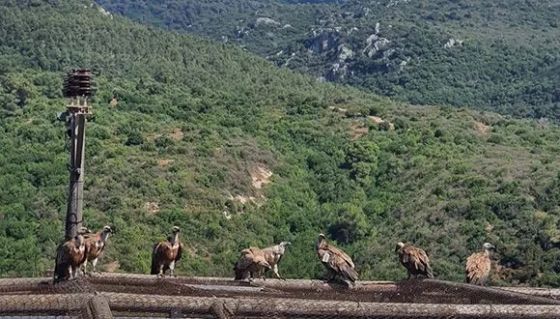A new Tel Aviv University study, the first of its kind, has revealed that vultures, much like humans, experience changes in movement habits and social relationships as they age. Young vultures frequently move between roosting sites and “hang out with friends”. During adolescence, they spend about half their nights at a permanent roosting site (“home”) and the other half at other sites. In old age, however, vultures scale back on socializing, preferring to “stay home”. The study, which involved 142 Eurasian Griffon Vultures (Gyps fulvus) in Israel, is among the few to shed light on the behavioral changes in aging animals in the wild.
The study, led by Dr. Marta Acácio as part of her post-doctoral research in Dr. Orr Spiegel’s laboratory at Tel Aviv University’s School of Zoology, was conducted in collaboration with Prof. Noa Pinter-Wollman of the University of California, Los Angeles (UCLA) and several other researchers. The findings were published in the prestigious journal PNAS.
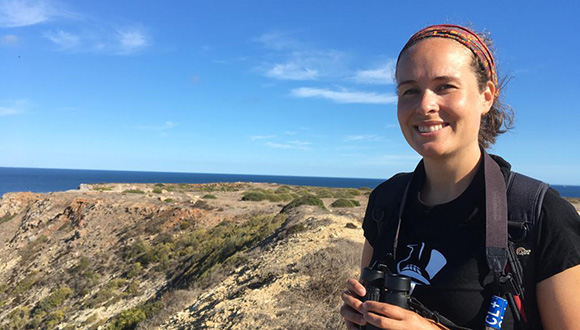
Dr. Marta Acácio.
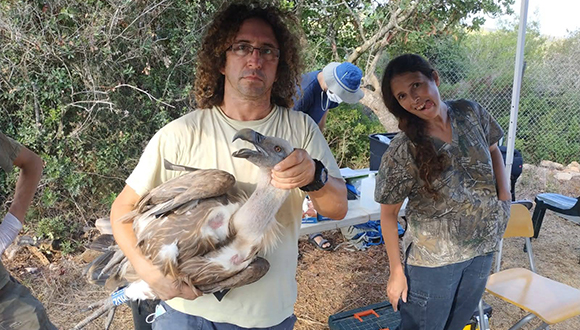
Dr. Orr Spiegel. releasing tagged vultures (Photo credit: Tovale Solomon).
The Eagle Has Landed
Dr. Spiegel explains: “Vultures are a locally endangered species in Israel, with only about 200 individual vultures remaining. They are closely monitored to determine the best possible conservation methods. We thought about what else could be gleaned from the extensive database we have accumulated over the years and agreed it would be interesting to explore how vultures age. Tracking the same individuals in the wild over many years is often very challenging. However, the transmitters we use to monitor the population provided a rare opportunity to observe the aging process in vultures specifically and in animals generally”.
The researchers utilized a database accumulated over 15 years from GPS devices attached to 142 vultures that tracked them for periods of up to 12 years. The vulture, a social bird, sleeps in roosts on cliffs. By cross-referencing the vultures’ ages with the GPS data on their roosting sites, the researchers discovered that as the vultures aged, they increasingly preferred to stay at the same roosting site.
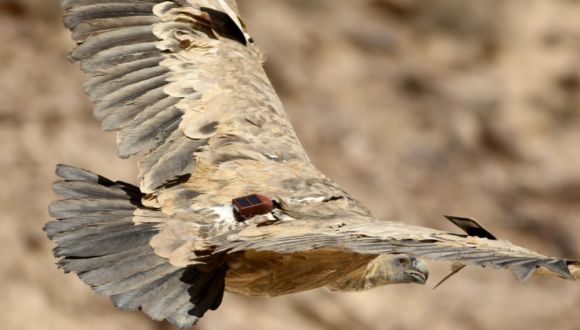
Aging vulture being monitored (Photo credit: Tovale Solomon).
Home Sweet Home
Dr. Spiegel: “It turns out that aging vultures behave a bit like humans and are more inclined to stay at home. When they’re young, vultures like to explore new sites and frequently move between places; the likelihood that a young vulture will sleep at the same site two nights in a row is low. When they reach adolescence at the age of five, this behavior stabilizes, and as adults they spend 50 percent of their nights at the same site and the other 50 percent at other sites. When they are old, from the age of 10 onwards, they no longer have the energy to be ‘out and about’, and return consistently to the same site. Furthermore, when adult vultures do change sites, they do so in a predictable pattern: for example, one night in Ein Avdat, the next in the Small Crater, and the next in Nahal Golhan, following a fixed order. Of course, it could be argued that older vultures move less not because they are old, but because they avoid taking risks in the first place, which is how they reached the age they did. But here we are talking about the exact same individual birds: those who were adventurous at the age of five became more sedentary by age ten”.
Elder Eagles’ Poisoning
According to Dr. Spiegel, these fascinating findings on the aging of birds also have very practical implications for conservation efforts. “This new study can help us better protect vultures’ roosting sites in the wild. Additionally, we have now seen that older vultures have fewer social connections, which can help us to prevent poisoning. The transmitters are connected to a system that sends an alert to the Israel Nature and Parks Authority, and to us by phone, if the vulture is not moving or has landed in a dangerous place, indicating that it may have been poisoned.
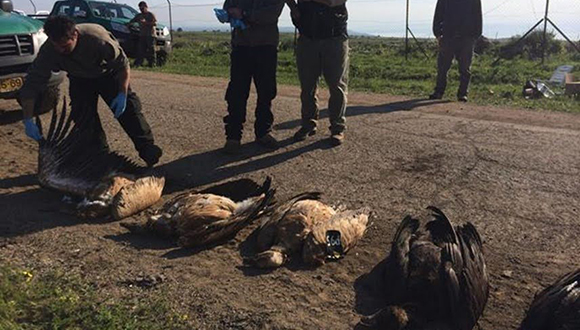
Collecting dead vultures following poisoning in the Golan Heights by Nature and Parks Authority rangers (Photo credit: Nature and Parks Authority).
Unfortunately, this happens frequently. The danger arises when a vulture descends on a poisoned goat carcass, not knowing that a farmer has poisoned the carcass in order to kill stray dogs. Being social birds, vultures do not come down alone, leading to the risk of dozens of vultures dying at once. Understanding how wide the poisoned vulture’s social circle is will significantly help in mitigating the damage”.
It is important to note that vultures play an important ecological role in the disposing of carcasses. Studies have shown that the extinction of vultures ultimately leads to the loss of human lives, due to the rise of diseases such as rabies. In India, for example, a recently published study revealed that the extinction of vultures due to poisoning resulted in the deaths of half a million people over the course of five years.

